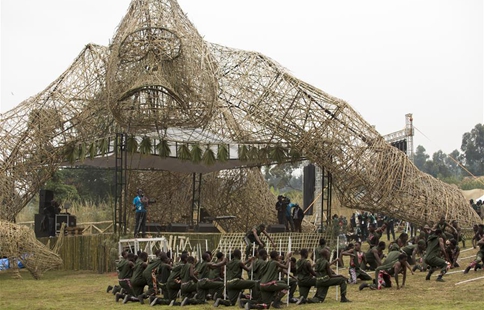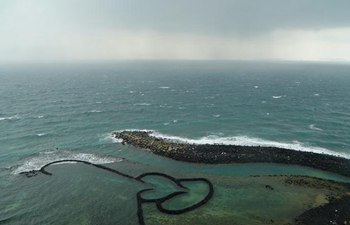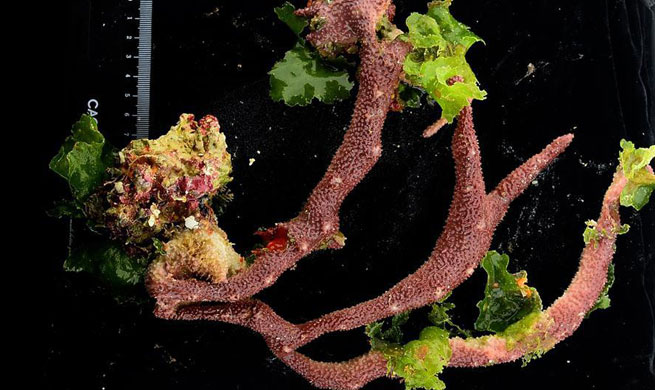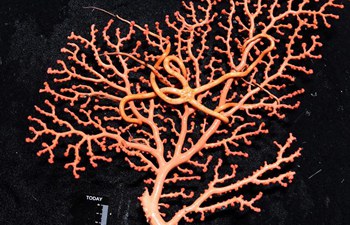SAN FRANCISCO, Sept. 1 (Xinhua) -- Researchers at two U.S. universities have found that bacteria can act as an aphrodisiac for one-celled marine organisms notable for being the closest living relatives of all animals.
The organisms, protists called choanoflagellates, or choanos, eat bacteria and serve as a source of food for small ocean animals like krill.
Detailed in a paper pubilished this week in the journal Cell, the discovery was the first known example of bacteria triggering mating in a eukaryote, a group that includes all plants and animals.
Five years ago, the lab of Nicole King, a professor of molecular and cell biology at the University of California, Berkeley, discovered that marine bacterium Algoriphagus machipongonensis makes the choanoflagellate Salpingoeca rosetta, or S. rosetta, form colonies reminiscent of an animal embryo.
The multicellular colonies do not involve mating, but could help the organism more efficiently harvest bacterial food from the environment.
In the new study, by researchers at King's lab and those at the lab of Jon Clardy at Harvard Medical School, the bioluminescent marine bacterium Vibrio fischeri triggers the S. rosetta to swarm and mate.
Results from the study show that Vibrio bacteria elicit a rapid response, with large percentages of cells mating within hours.
The researchers was able to track down the trigger - a protein constantly secreted by the bacteria, which they dubbed EroS, and found that EroS is a chondroitinase, an enzyme that degrades a specific type of sulfated molecule found in the extracellular matrix of S. rosetta that was previously thought to be exclusive to animals.
In addition, they found that if this enzymatic function was inhibited, swarming did not occur, and that chondroitinases from other aquatic bacteria reproduced the aphrodisiacal effects.
"Choanoflagellates have a lot of flexibility in their life history. They can go on and on being asexual, but now we've found that they can also be sexual, and that the switch to sexuality is induced by a bacterial cue within an hour after exposure," King was quoted as explaining in a news release from UC Berkeley on Friday.
The discovery suggests that other creatures, including some that have been difficult to study in the lab because they fail to mate, may need a little bacterial aphrodisiac to get it on. "One possibility is that these animals need particular cues from environmental bacteria that are not being provided in the lab," King said.
As for implications for animals like humans and their bacterial partners, the so-called microbiome, she noted, adding "we hope that by studying choanos, which are really simple, that we can identify key molecules and then go into the more complex environment of the gut microbiome, for instance, and see whether some of these molecules matter in that context as well."



















